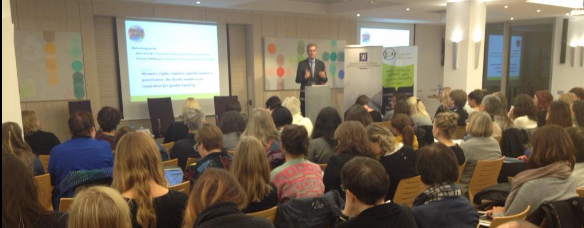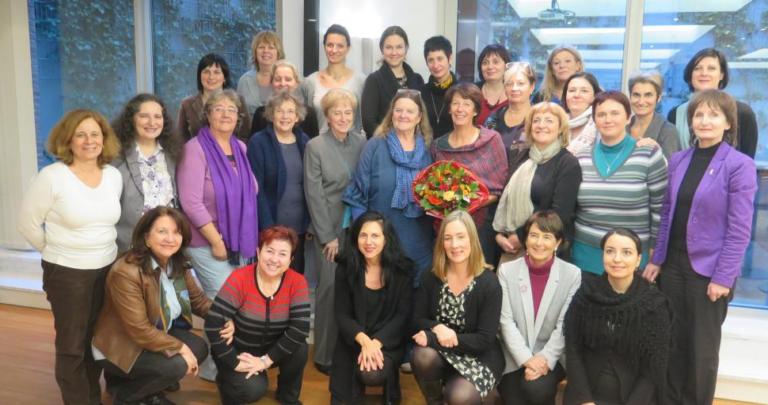[Brussels, 25 January 2013] Members of the European Parliament heard on 23 January that EU countries need to match their commitment to women’s sexual and reproductive health in internal policies with their external demands.
In a Public Hearing organised by the Committee on Women’s Rights and Gender Equality, MEPs and panelists called for a more incisive role of the EU in fostering the sharing of best practices and law harmonisation among Member States in the field of sexual and reproductive health and rights. They also focused on the importance of a gender perspective on these issues at all levels of decision-making.
The Chair, MEP Mikael Gustafsson, gave the floor to MEP Edite Estrela, Rapporteur on SRHR, and to panelists coming from the World Health Organisation (Ms Gunta Lazdane), the Centre for Reproductive Health and Rights (Ms Johanna Westeson), International NGOs (Ms Krystyna Kacpura – ASTRA Network, Ms Thilde Knudsen – Maire Stopes International) and academics (Mr Zbigniew Izdebski – University of Zielona GOra, Ms Regina Maria Machado Marques – Polytechnic Institute of Setubal). The issues debated were: health literacy, sexual education, accessibility of SRHR in EU public health systems and the role of the EU as a promoter of women’s SRHR globally.
Sexuality education was seen as a right in itself, enshrined in key human rights treaties ratified by all EU Member States. Sexuality education is in fact pivotal for the enjoyment of other rights, i. e. liberty, and it has proven to be an impressive deterrent for violence against women. Sexuality education should be given nowadays to all students starting from the elementary school, panelists agreed, as the role of internet and some media in this field should not be underestimated: young people need information channeled in a way which is adequate to their age.
The subsidiarity principle governing the EU must be respected, panelists said, but the EU as a supranational institution must encourage best practices sharing among countries and harmonisation of rules. Many differences still exist, though, among Southern and Northern countries and between Western and Eastern Europe as to the access to sexual education, sexual and reproductive health and the effective enjoyment of these rights. What is more: differences are evident even within countries between urban and rural contexts.
SRHR should also be considered from a gender perspective, as apart from the geographic determinants of health, there are evident gender-specific exposures to sexual and reproductive health risks that must be tackled with gender lenses.
Economic crisis increasingly impacts on SRHR too, due to generalised cuts in public spending that disproportionately affect women’s access to social services, including health services. Economic crisis also affects the choice of pregnancies and abortions, which should be free from any external influence. The accent was put on how and how much it is the overall economic situation, and not the legalisation of abortion, that strongly influences the demographic trend in Europe.
Statistics on SRHR all over Europe are nevertheless lacking and the EU should play a pivotal role in making it feasible to collect data properly in order to promote laws based on scientifically sound data, far from any religious legacy on these issues.
The EU could have a leading role at a global level in advocating for health rights and gender equality, but it must first be credible on these issues within its borders. The final aim is to guarantee to all women in Europe sexual and reproductive health during their whole life, because respect and dignity, it was said, are public goods.



